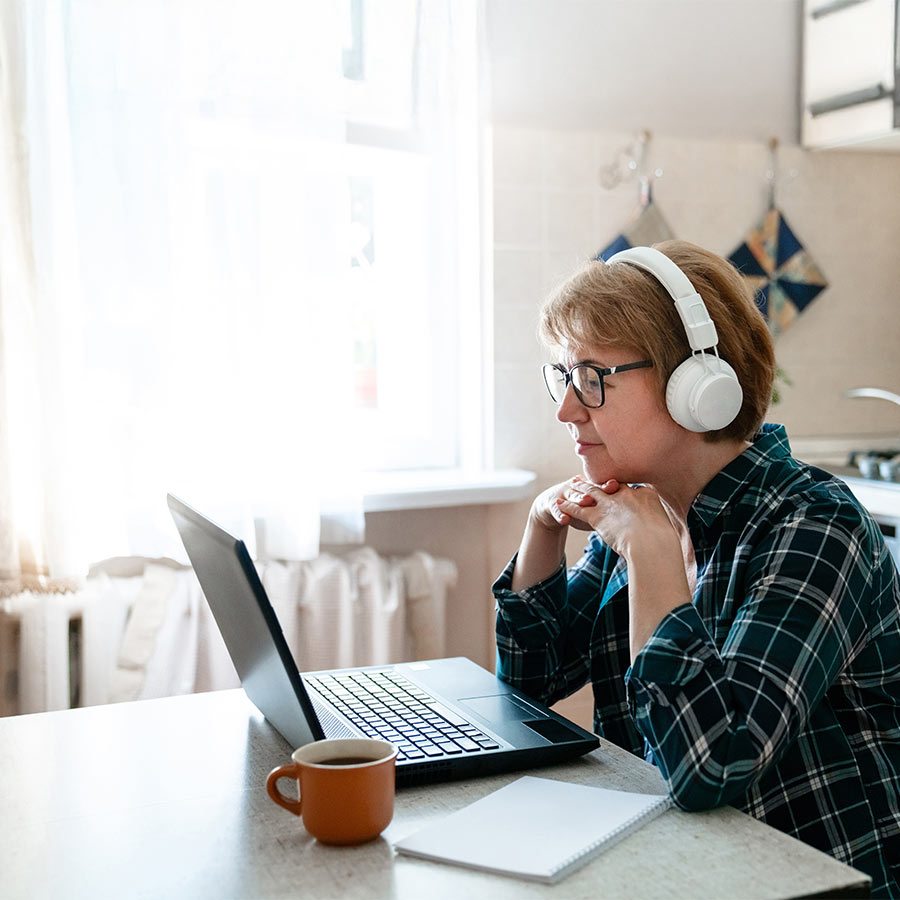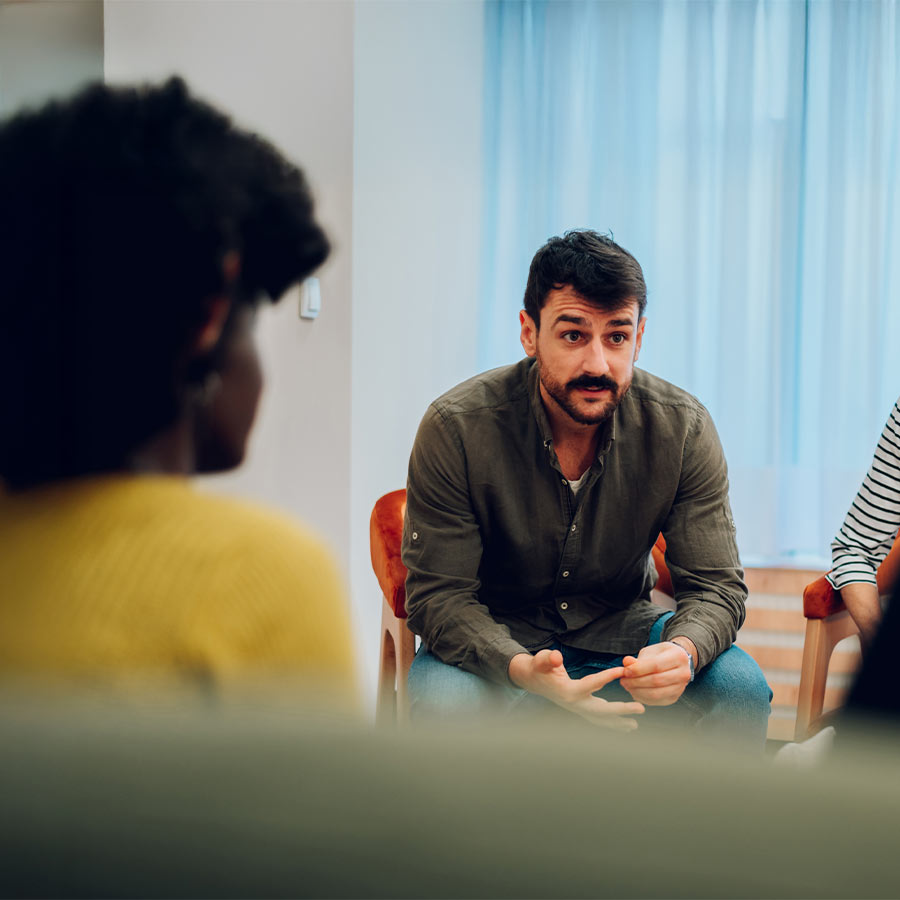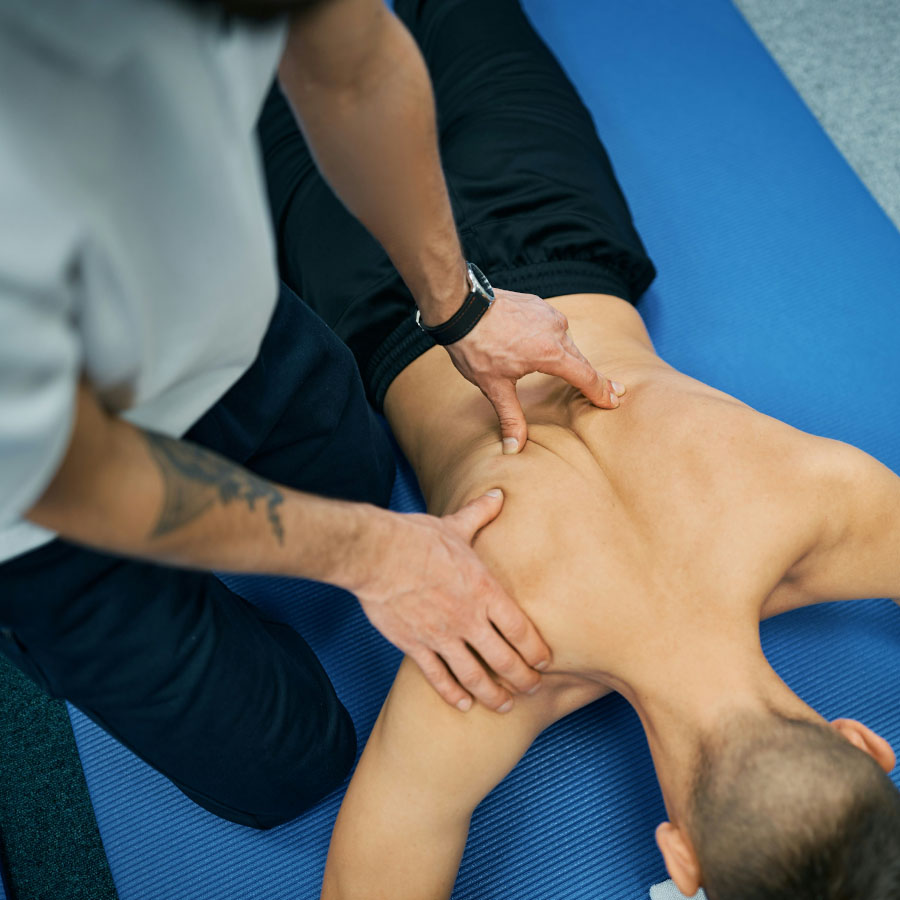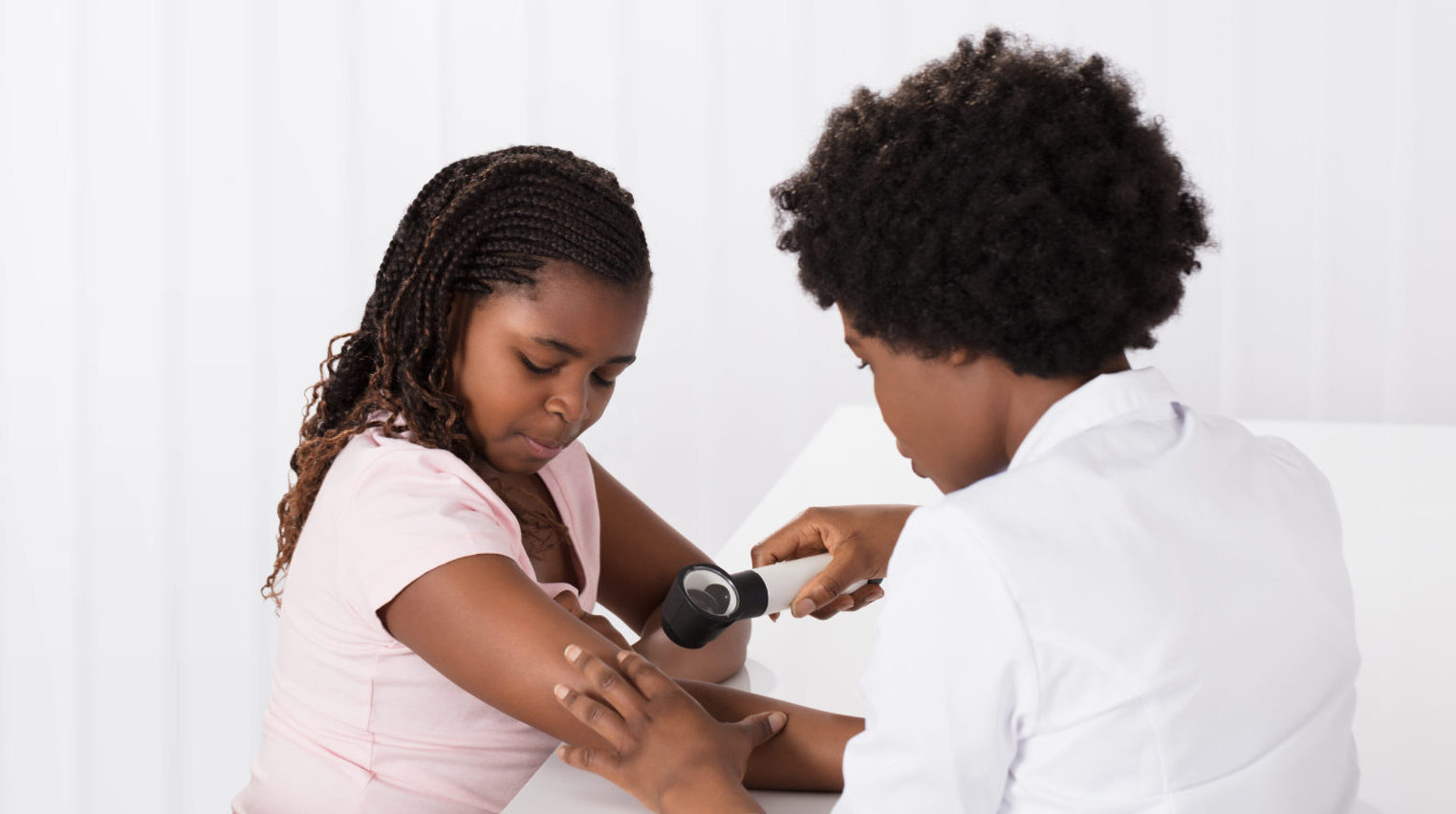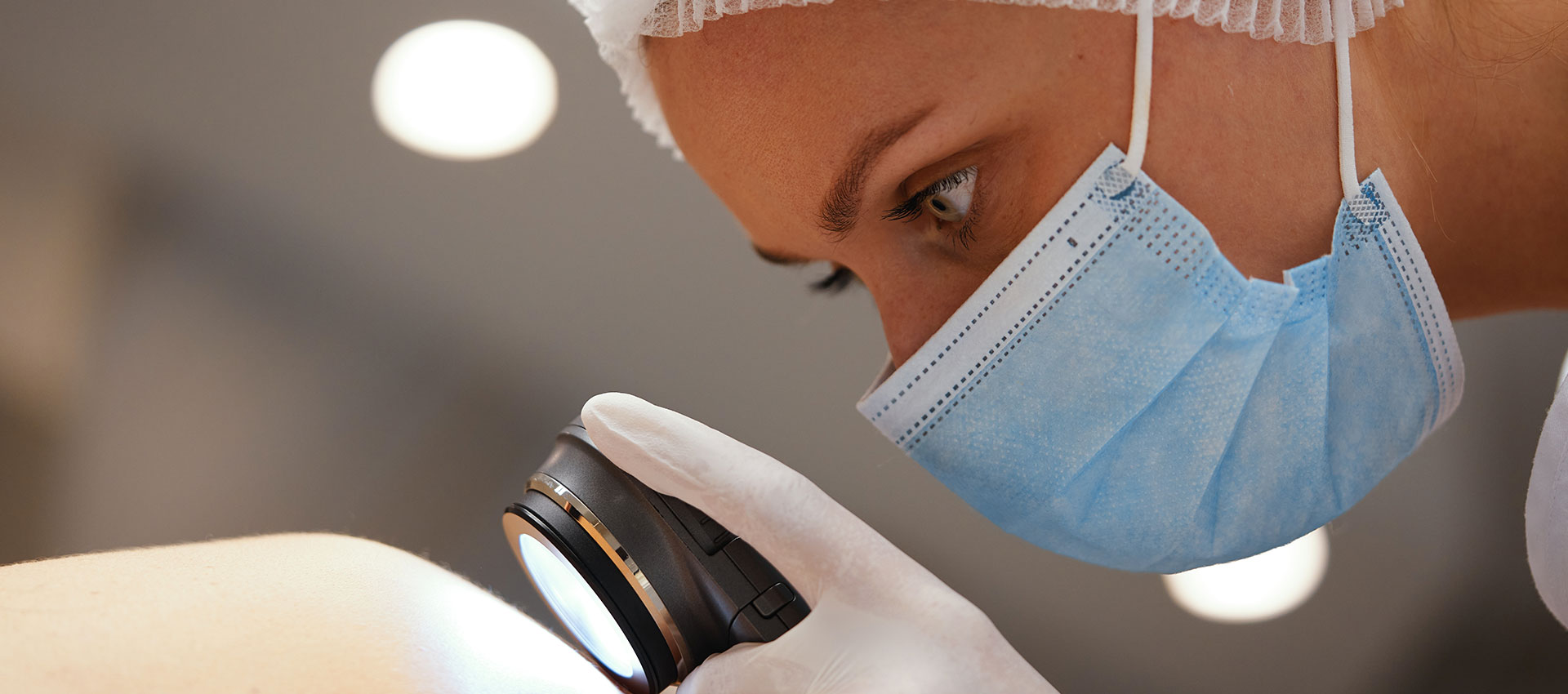Once we have received your referral, one of our consultant dermatologists will review the information and any attached photographs and decide on the best next step. This will ensure you are diagnosed quickly and access the right treatment pathway first time.
Arranging your appointment
A member of our team will get in contact to arrange an appointment at a time, date and location of your choosing, with all information confirmed via text, email or letter. This confirmation will also include any specific details about your appointment, including anything you should do prior to it.
Taking photos of your skin
If you are required to take photographs of your skin condition or would like to take these along to your appointment with the dermatology service then please follow the advice in this video.
If you require translation facilities or would like a chaperone to attend your appointment with you, please inform our team when you make your appointment.
Clinic appointments
- For face to face appointments please report to reception on arrival and they will direct you to the correct waiting area. We recommend that you arrive 10 minutes prior to your appointment.
- We aim to keep the clinic times running as smoothly as possible and will inform you if there is a significant delay in your appointment time.
- At the end of your appointment, you may be issued with a prescription. This will be available to collect at your chosen pharmacy.
- If you are required to come back to the clinic for a follow up appointment, you will receive an appointment letter by email / via post.
- The Dermatology specialist will also send a letter to your GP detailing any further treatment or tests you may require. Your GP should receive this information within two weeks of your visit.
- If you require a surgical procedure, a date for this will be arranged in due course and you will be asked to come back to clinic to have the procedure carried out.
- If you need to cancel or rearrange your appointment, or your contact details have changed please contact us.
Telephone or video appointments
- For telephone or video appointments, please be ready for the appointment 10 minutes before the appointment time.
- Please make sure you are somewhere quiet and private for your appointment so you can answer any questions the dermatologist might have and be able to show them any symptoms you want to discuss.
- We aim to keep the clinic times running as smoothly as possible and will inform you if there is a significant delay in your appointment time.
- At the end of your appointment, you may be issued with a prescription. This will be available to collect at your chosen pharmacy. You do not need to go to your GP practice to collect this.
- If you are required to come back to the clinic for a follow up appointment, you will receive an appointment letter by email / via post.
- The Dermatology specialist will also send a letter to your GP detailing any further treatment or tests you may require. Your GP should receive this this information within two weeks of your visit.
- If you require a surgical procedure, a date for this will be arranged in due course and you will be asked to come back to clinic to have the procedure carried out.
- If you need to cancel or rearrange your appointment, or your contact details have changed please contact us.
To access our services, you require a referral from your GP practice.
For any queries, email us at dermatology.admin@vhg.co.uk.
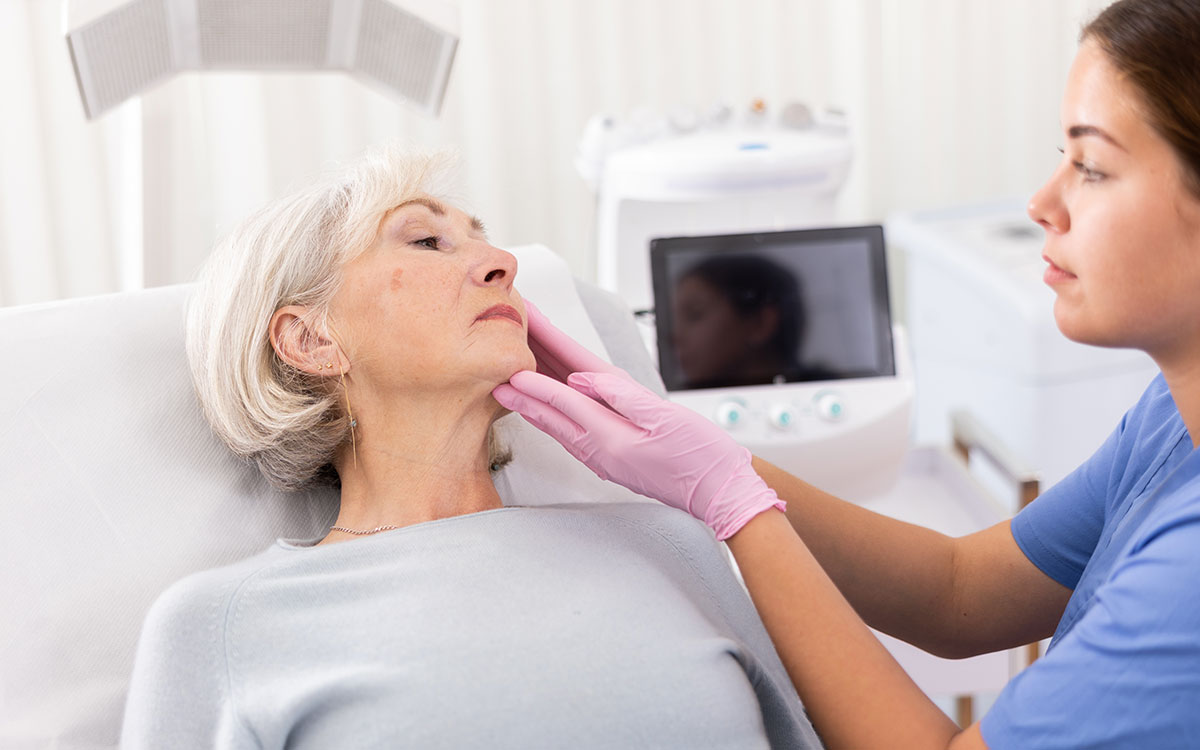
Preparing for minor procedure surgery
Learn more about the procedures and what you need to know ahead of your minor procedure appointment.
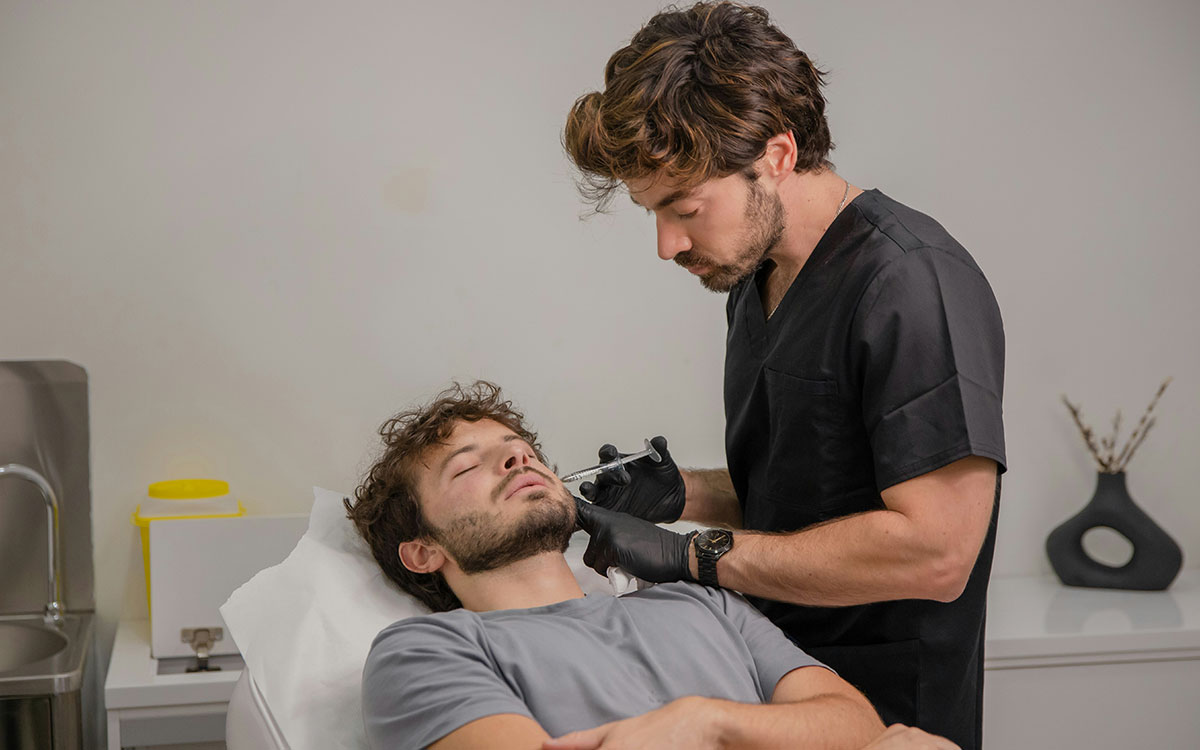
FAQs
How close to the appointment can I cancel and reschedule? Learn more
The demand on our service is very high and therefore we would appreciate if you were able to give us at least 48 hours’ notice where possible, so we are able to give the appointment slot to someone else.
If you fail to attend your appointment or cancel with less than 48 hours’ notice twice you will be discharged back to your GP.
Frequently cancelling your appointments with more than 48 hours’ notice will also lead to being discharged back to your GP.
We understand it can sometimes be unavoidable to cancel your appointment and these circumstances will always be considered if you inform us that you are unable to attend.
What happens when I reschedule an appointment? Learn more
If you fail to attend your appointment or cancel with less than 48 hours’ notice twice you will be discharged back to your GP. If it is your first cancellation, an administrator will rearrange the appointment for you for a time that suits you within our service hours.
What should I do if I no longer require my appointment and would like to be discharged? Learn more
If you no longer want to access the service, please let us know and we can cancel your appointment and discharge you. Following this you can visit your GP for a new referral, should you want access our service again.
The procedure will be performed under a local anaesthetic by one of our skin surgery specialists. You are able to eat and drink as usual prior to the procedure. It is recommended that you have someone accompany you to the appointment as you may not be able to drive home, particularly after surgery to the face, neck, head or hands.
On arrival
Please arrive at least 10 minutes before your appointment time. On arrival, you will be asked to wait in the waiting area before being brought into the treatment room. The clinician will describe the procedure and answer any questions you may have. You will be asked to read and sign a consent form once all the risks and benefits of the procedure have been discussed.
The procedure
Local anaesthetic will be injected into the site for your required surgical procedure. This causes a stinging sensation lasting several seconds. The area then becomes numb and no discomfort should be felt. The lesion is biopsied or excised and sent to the laboratory for pathological analysis (checked under a microscope). The wound may be closed with stitches – on the skin surface and often underneath the skin (these will dissolve over several months). A dressing will be applied. Occasionally, you may be prescribed a course of antibiotic tablets to be taken after the surgery. It is important that we know if you have any antibiotic allergies.
Skin biopsy analysis – the results
All skin surgery specimens are sent to our pathologists for analysis. The result is usually available within 4 weeks but may take longer if further analysis is needed to reach a diagnosis. A member of the Dermatology Team will either write to you, or contact you over the phone with the results, or request a follow up appointment to see you.
Wound care
Keep the area completely dry for 48 hours. At this stage the dressing can usually be removed. The area can be gently washed once a day, and you can apply a thin smear of ointment. If you prefer you can keep the wound covered with a simple dressing which should be changed daily.
If the wound starts to bleed, apply firm continuous pressure for 30 minutes. Slight bleeding in the few hours after surgery is common and is aggravated by activity. Hot drinks or bending down can cause bleeding, especially on facial wounds. Swelling and bruising is common, especially after facial surgery, and can be lessened by use of an ice pack. Use extra pillows after facial surgery and elevate the leg after lower limb surgery.
Do not use make-up near a wound until the surface has completely healed. Avoid swimming until the wound is completely healed. The scar will be strong by 30 days – and is at its weakest during the first 10 days. Too much activity can put strain on the healing scar. This can lead to stretching of the scar or bursting of the wound. Surgical wounds on the lower leg generally take a lot longer to heal.
Common procedures include:
Punch Biopsy
A punch biopsy is a procedure in which a small circular shaped piece of skin is removed and sent to the laboratories for analysis, to establish a diagnosis. The patient remains awake during the procedure and the area is injected with a local anaesthetic to numb the skin being operated on. The skin is closed with one or two stitches that can be removed after five to fourteen days (often by a practice nurse at the patient’s GP surgery). Dissolving stitches are also occasionally used.
Incisional Biopsy
An incisional biopsy is when part of a skin lesion is removed for analysis, using a scalpel (sharp surgical blade). The patient usually remains awake during the procedure and the area is injected with a local anaesthetic to numb the skin being operated on. The skin is closed with a few stitches that can be removed after five to fourteen days (often by a practice nurse at the patient’s GP surgery). Dissolving stitches are also occasionally used.
Excision Biopsy
An excision biopsy is complete removal of a skin lesion/mole. As for an incisional biopsy, the patient usually remains awake and the area is closed with a few stitches.
Wider Excision or Wide Local Excision
This surgical procedure is sometimes performed on patients who have had previous surgery for skin cancer. The surgeon removes a margin of normal looking skin from around the operation scar. This is to make sure that no skin cancer cells are left behind. The amount of skin removed depends on how deeply the skin cancer had gone into the skin, but it is often at least 5mm and can be up to 3cm of further tissue taken from around the original site. The patient may remain awake if done under a local anaesthetic, or occasionally may be asleep if a general anaesthetic is required for the procedure. This will depend upon the site to be operated on and the treatment plan that best suits each individual patient.
Please do not stop taking your usual medication ahead of your appointment; and check to see if any of the following areas are applicable to you:
Aspirin
If you take a ‘mini aspirin’ daily continue to take it, but please inform us at the time of surgery.
Warfarin
The INR ideally should be less than 3. Please get your INR checked 2 days before the procedure. Do not alter your warfarin dose unless this has been advised by the doctor prescribing the warfarin. Please bring your anticoagulation book to
Other blood thinners
Such as clopidogrel, dipyridamole, edoxaban, rivaroxaban, apixaban or dabigatran – please let the dermatology department know before the date of the surgery so any advice can be given.
Medical Conditions
If you have diabetes, epilepsy, a bleeding disorder (including a low platelet count), a pacemaker, cochlear implant or any implantable device, prosthetic heart valves or any other significant medical conditions then please let us know.
Allergies
Please inform of any allergies, particularly to antibiotics, dressings, latex and anaesthetics.
Smoking
Impairs the skin’s ability to heal. If you are able to stop smoking for 2 weeks before and after the operation the overall wound healing will be improved.



